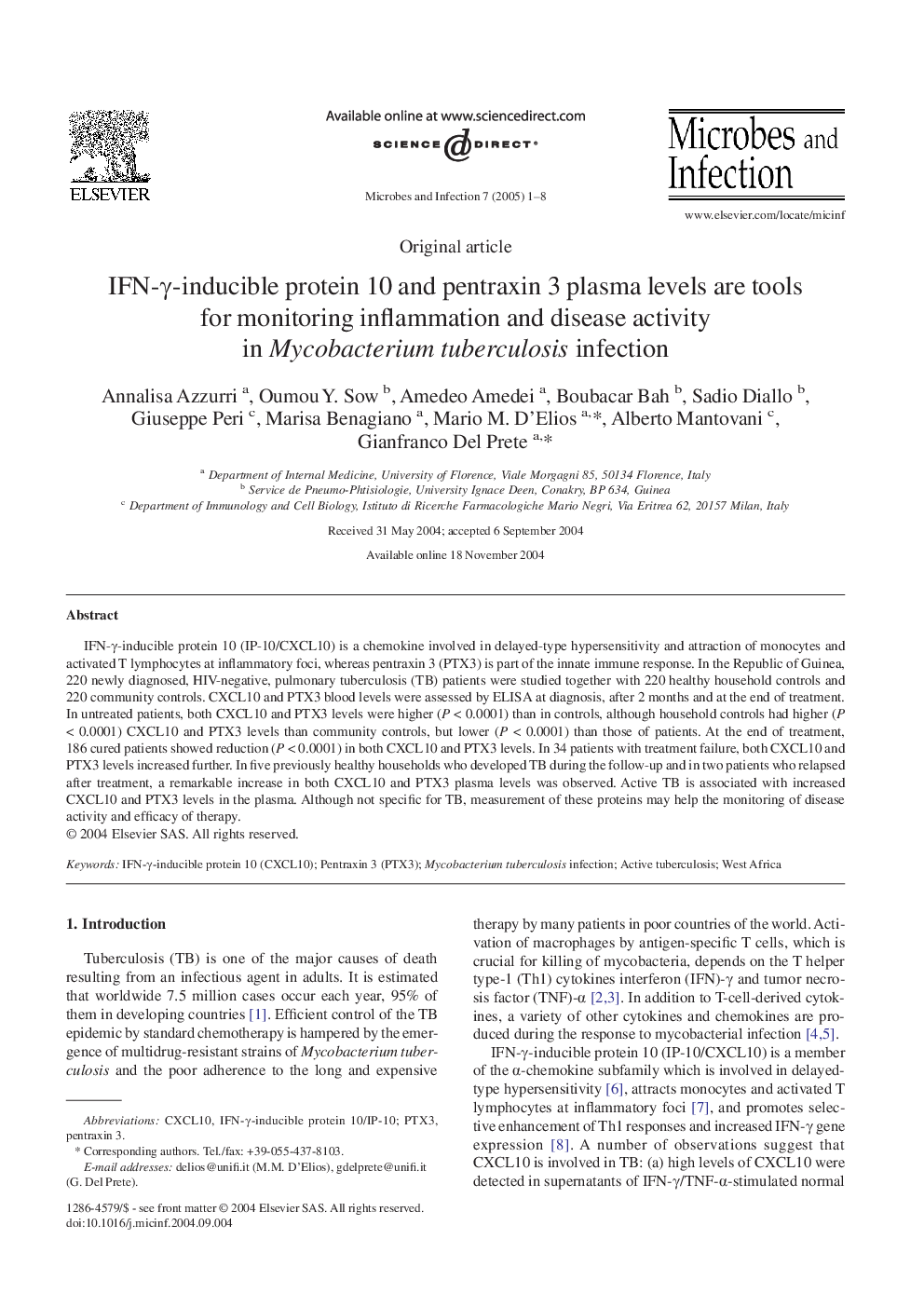| Article ID | Journal | Published Year | Pages | File Type |
|---|---|---|---|---|
| 9283038 | Microbes and Infection | 2005 | 8 Pages |
Abstract
IFN-γ-inducible protein 10 (IP-10/CXCL10) is a chemokine involved in delayed-type hypersensitivity and attraction of monocytes and activated T lymphocytes at inflammatory foci, whereas pentraxin 3 (PTX3) is part of the innate immune response. In the Republic of Guinea, 220 newly diagnosed, HIV-negative, pulmonary tuberculosis (TB) patients were studied together with 220 healthy household controls and 220 community controls. CXCL10 and PTX3 blood levels were assessed by ELISA at diagnosis, after 2 months and at the end of treatment. In untreated patients, both CXCL10 and PTX3 levels were higher (P < 0.0001) than in controls, although household controls had higher (P < 0.0001) CXCL10 and PTX3 levels than community controls, but lower (P < 0.0001) than those of patients. At the end of treatment, 186 cured patients showed reduction (P < 0.0001) in both CXCL10 and PTX3 levels. In 34 patients with treatment failure, both CXCL10 and PTX3 levels increased further. In five previously healthy households who developed TB during the follow-up and in two patients who relapsed after treatment, a remarkable increase in both CXCL10 and PTX3 plasma levels was observed. Active TB is associated with increased CXCL10 and PTX3 levels in the plasma. Although not specific for TB, measurement of these proteins may help the monitoring of disease activity and efficacy of therapy.
Related Topics
Life Sciences
Immunology and Microbiology
Immunology
Authors
Annalisa Azzurri, Oumou Y. Sow, Amedeo Amedei, Boubacar Bah, Sadio Diallo, Giuseppe Peri, Marisa Benagiano, Mario M. D'Elios, Alberto Mantovani, Gianfranco Del Prete,
